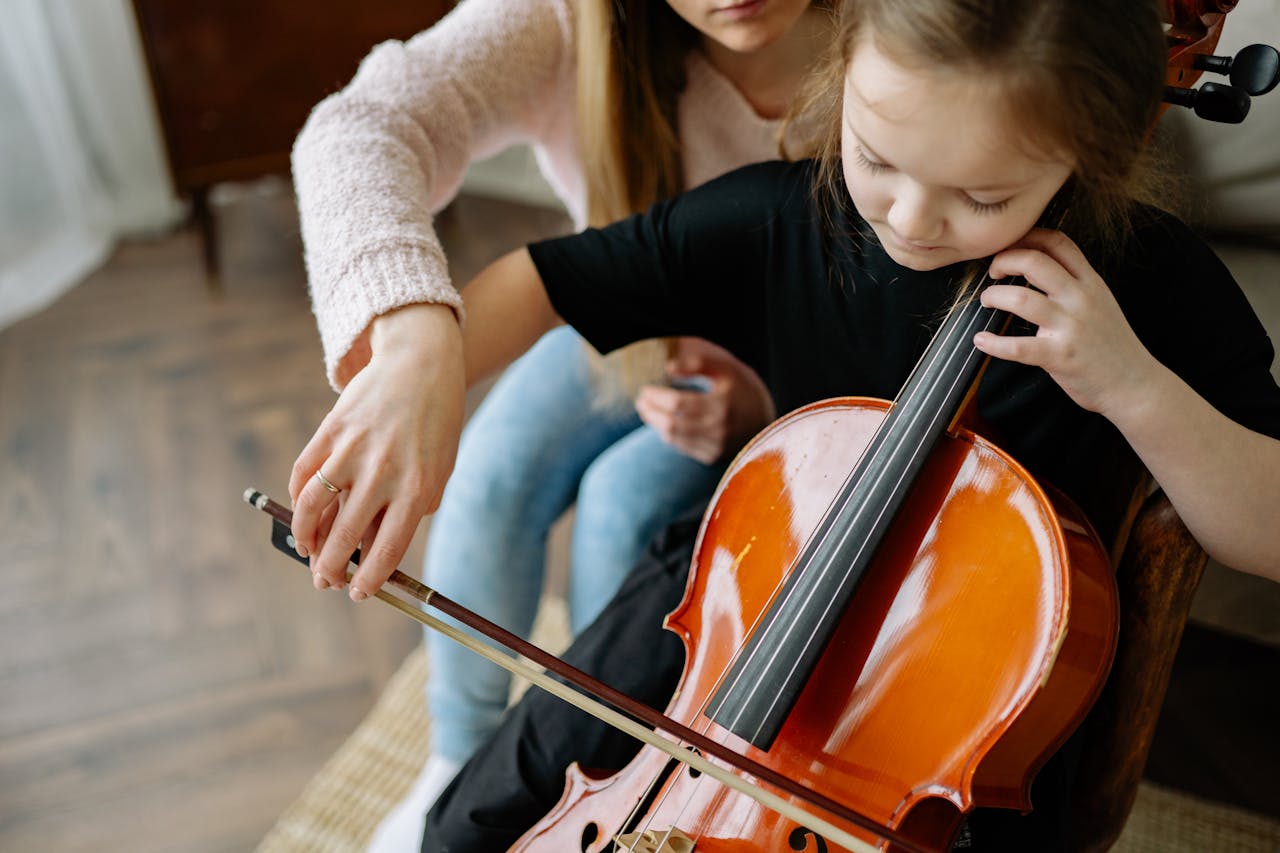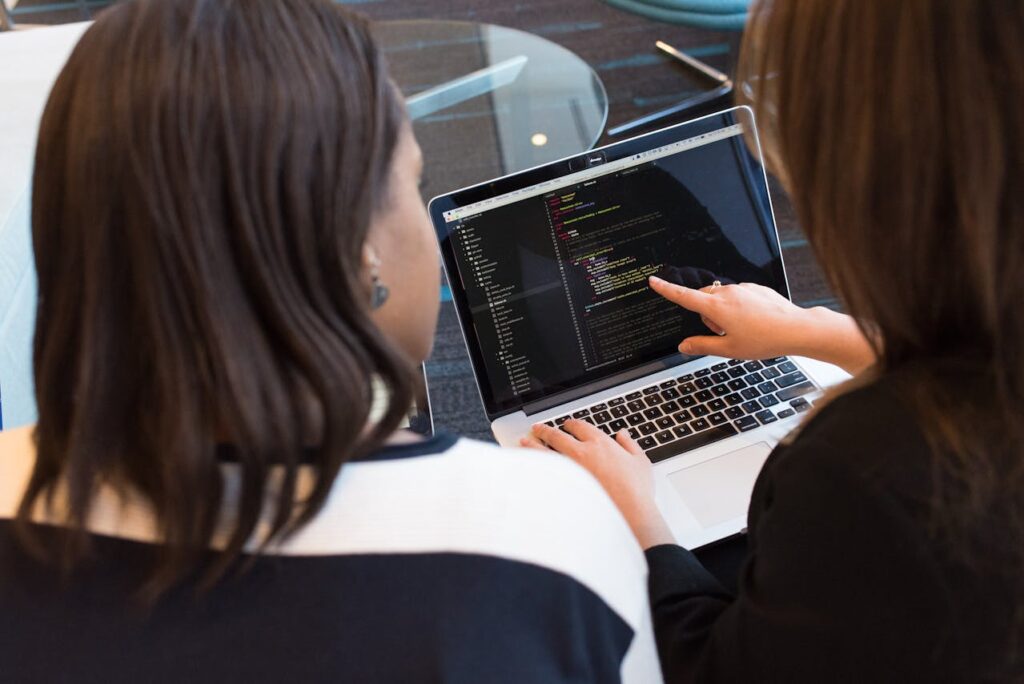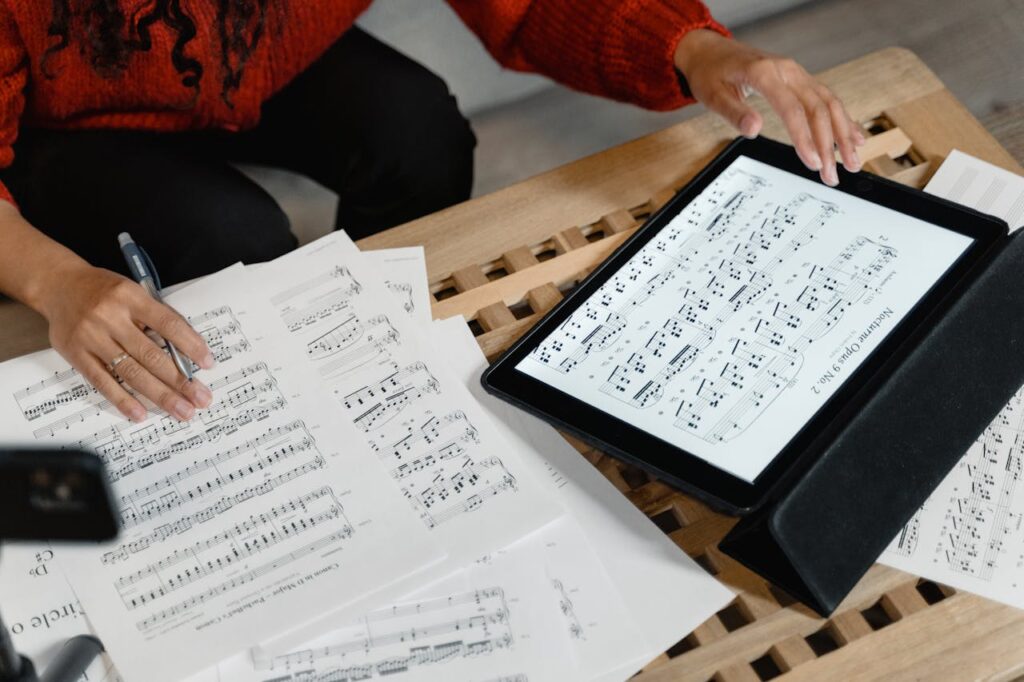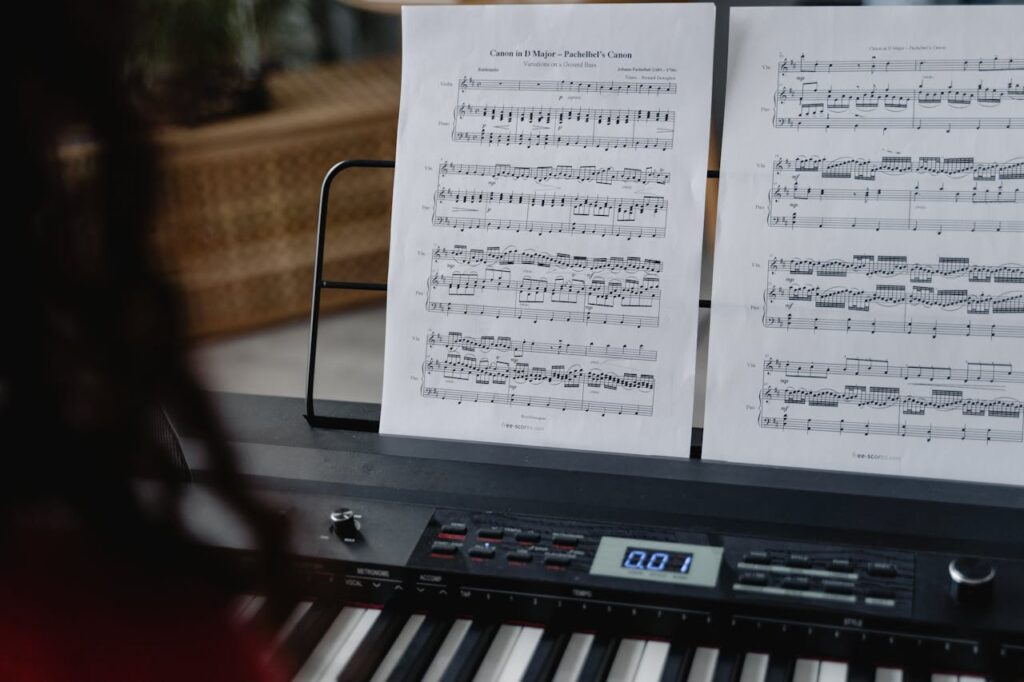If You Want Smarter Kids Teach Them Music, Not Coding, According to MIT

We’ve been told that the future belongs to those who can code. That teaching kids to program is the smartest investment we can make. It sounds right—logical, modern, necessary. But what if we’ve been focusing on the wrong “language”? What if the true key to a child’s development isn’t digital fluency, but something far older, far deeper—something that doesn’t just teach them to think, but to feel, to create, to connect?
This isn’t about knocking coding or resisting technology. It’s about asking a deeper question: What actually builds a better brain? What actually shapes a stronger, more adaptive, more human mind? Groundbreaking studies from MIT and the University of Zürich are pointing to a powerful truth—one we’ve too often pushed aside: If you want smarter, more capable kids, don’t just hand them a keyboard. Hand them an instrument.

Why Music Shapes the Brain More Deeply Than Code
Music is more than sound—it’s structure, emotion, memory, and movement all at once. Unlike most activities, which tap into isolated regions of the brain, playing an instrument activates a vast neural network. When a child learns to play the piano or the violin, they’re not just training their fingers—they’re training their ears to listen deeply, their eyes to read complex notation, their brain to anticipate patterns, and their emotions to express what words often can’t. This multisensory integration is what makes music so powerful. It’s a workout for the whole brain, not just one corner of it.
Studies have shown that musical training strengthens the corpus callosum—the bridge between the brain’s two hemispheres—improving communication between left and right brain functions. This means better coordination between logic and creativity, analysis and intuition. A musician doesn’t just think; they feel, they interpret, they adapt in real time. That blend is what builds higher-order thinking, the kind that helps with problem-solving, empathy, and adaptability in both school and life. Coding, by contrast, often emphasizes linear problem-solving and abstraction—useful, yes, but far more compartmentalized in its cognitive demand.

Furthermore, music demands patience and discipline. A child learning an instrument must develop the ability to focus, persist through mistakes, and practice deliberately over time. These habits are foundational to success in any field. Researchers have linked musical training with improved working memory, enhanced attention control, and stronger emotional regulation—all of which are crucial in today’s fast-paced, distraction-filled world. While coding can teach logical thinking, it doesn’t usually challenge the emotional and self-regulatory systems in the same deeply immersive way that music does.
There’s also a deeply human dimension to music that coding simply doesn’t replicate. Music connects people—it’s communal, expressive, and cultural. Whether a child is playing in a school band or singing in a choir, they’re learning to collaborate, to listen to others, to harmonize not just in sound, but in spirit. These social-emotional experiences aren’t just nice extras; they’re part of what shapes resilient, compassionate individuals. In a world that increasingly values empathy and collaboration, musical training provides an early, rich foundation for both.
Music vs. Coding – What Really Enhances a Child’s Brain?
In recent years, a rallying cry has echoed through schools, tech summits, and education reform panels: “Teach every kid to code.” The idea is everywhere—if the future is digital, then kids should be fluent in the language of computers. Tech leaders, policymakers, and parents alike have pushed coding as the golden key to future success. And while the intention is good—preparing kids for a world filled with technology—the actual impact of early coding education might not be what we think it is.
A 2020 study from MIT offers a surprising perspective. Researchers set out to test the widely held belief that coding enhances math and language skills. What they found, however, was that understanding computer code appears to be its own distinct cognitive skill—separate from math, language, and even logical reasoning. This means that learning to code doesn’t necessarily translate into better performance in other academic areas. It’s a valuable skill in certain contexts, yes, but it’s not the universal cognitive enhancer it’s often portrayed to be. Most coding taught in K–12 doesn’t even resemble real-world software development. At best, it introduces kids to basic logic structures; at worst, it mimics a skill set that very few will ever need in their daily lives.

Now, compare that to music. A 2021 study conducted by researchers at the University of Zürich and published in The Journal of Neuroscience paints a very different picture. Using brain scans, the researchers compared the neurological makeup of musicians and non-musicians. The differences were dramatic. Children who had learned to play a musical instrument showed significantly higher levels of structural and functional connectivity in their brains, especially in regions tied to auditory processing, speech, memory, and executive function. These are not just “nice to have” abilities—they’re the foundations of learning, emotional regulation, and problem-solving.

What’s even more powerful is that the benefits of music don’t disappear when a child puts down the instrument. The study found that the earlier a child started musical practice, the more profound and lasting the brain changes were—even if they stopped playing later on. This suggests that music training doesn’t just improve a specific skill—it fundamentally reshapes the brain in ways that support lifelong learning and cognitive resilience.
Rethinking Education—Why Music Deserves a Front Row Seat
For years, schools have been cutting back on arts programs to make room for more STEM-focused learning. Coding classes, test prep, and data-driven curriculums have taken center stage, often at the expense of music and the arts. But if we truly want to prepare children for a complex, fast-changing world, we need to reconsider what we’re cutting—and what we’re missing. The science is clear: music isn’t a luxury. It’s a powerful cognitive and emotional training ground, and one that deserves more than an optional after-school slot.
Too often, music education is treated like a nice-to-have enrichment activity instead of a core component of intellectual development. This mindset ignores the mounting evidence that music not only enhances brain structure and function but also supports academic performance in other areas. Numerous studies have linked musical training with higher scores in reading comprehension, verbal memory, and even mathematics. These aren’t just correlations—they reflect the way music strengthens the brain’s executive functions, the very tools that students need to succeed in all subjects.

In contrast, coding has often been sold as a future-proof skill—a kind of educational insurance policy. But the truth is, the digital world is evolving so rapidly that the programming languages kids learn today may be obsolete tomorrow. More importantly, many coding tasks are already being automated by AI and low-code platforms. What will endure are the human traits that machines can’t replicate: creativity, emotional intelligence, nuanced communication, and the ability to synthesize information across different domains. Music education helps develop exactly those traits, cultivating minds that are not just technically capable, but also emotionally and socially aware.

For parents and educators, this doesn’t mean abandoning technology—it means finding balance. Yes, kids can benefit from understanding how code works. But if we’re serious about nurturing well-rounded, deeply capable human beings, music deserves to be a foundational part of that journey. It’s not about training future concert pianists; it’s about equipping young minds with the neural flexibility, discipline, and emotional insight that music uniquely offers.
The Long Game—Music’s Impact Beyond the Classroom
What happens when we raise a generation of kids who grow up with music, not just as entertainment, but as education? The effects reach far beyond better grades or sharper memory. Children who are exposed to music early and often tend to carry those benefits into adulthood—not just cognitively, but emotionally and socially as well. They’re more likely to be adaptable, empathetic, and resilient—all traits we desperately need in leaders, workers, and citizens today.
Neuroscientific research has consistently shown that the brain remains more flexible and adaptable—what scientists call neuroplasticity—when it’s engaged in complex, integrative tasks like music. This kind of lifelong cognitive flexibility isn’t just useful for school—it’s vital for navigating change, managing uncertainty, and solving problems in real time. These are the skills that don’t show up on standardized tests but matter deeply in real-world success. While coding might prepare someone to interact with machines, music prepares them to engage meaningfully with people and the challenges of human life.
And there’s a social ripple effect too. Communities that invest in music programs—especially those in under-resourced areas—tend to see improvements in student engagement, school attendance, and emotional well-being. Music becomes more than a subject; it becomes a sanctuary, a source of identity and connection. For students who might not shine in traditional academic settings, music offers a way to discover their strengths and build self-worth. That kind of empowerment can shift life trajectories.
Moreover, in an age where mental health challenges are rising among youth, music offers something uniquely healing. It’s one of the few tools that allows kids to process emotion, reduce stress, and find meaning without needing to explain it in words. Music therapy has already been recognized as a valuable support in treating anxiety, depression, and trauma. What if, instead of treating emotional wounds after the fact, we helped prevent them in the first place by giving kids a creative, expressive outlet from the start?
A Call to Tune In—Choosing What Truly Shapes Our Future
We live in a world that’s racing forward—faster tech, smarter devices, tighter schedules. It’s easy to get caught up in the belief that productivity equals progress, that screens will save us, and that teaching our kids to code is the key to unlocking their future. But maybe, just maybe, what they really need is not more exposure to machines, but a deeper connection to themselves—and to each other.
Music is one of the oldest human languages. It predates writing, it transcends borders, and it speaks when words fail. Teaching a child to make music isn’t just giving them a skill—it’s giving them a way to understand the world. A way to focus, to feel, to express, to collaborate. A way to grow not just smarter, but wiser.
We need to rethink what it means to be “prepared” for the future. The jobs of tomorrow will require not only technical knowledge, but emotional intelligence, adaptability, and creativity—the kind of multidimensional thinking that music cultivates every time a child picks up an instrument. This is not about choosing between music and coding. It’s about recognizing that in our rush to digitize everything, we may be leaving behind one of the most powerful tools we have to develop the whole child.
Loading...

